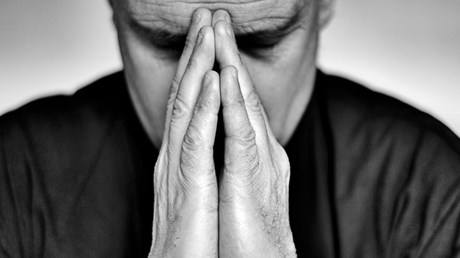Prayer—and lament—is the proper first response to tragedy.

Editor’s note: This article was originally published in response to the 2015 San Bernardino attack.
We can say with some confidence that all the following are true.
1.a. When news of a tragedy reaches us, almost all of us find our thoughts overwhelmed for minutes, hours, or days, depending on the scope, severity, and vividness of the loss. This is called empathy—our ability to put ourselves in the place of others and imagine their suffering and fear, as well as heroism and courage, and to wonder how we would react in their place.
1.b. Almost all human beings, whatever their formal religious affiliation, find themselves caught up in a further reaction to tragedy: reaching out to a personal reality beyond themselves, with grief, groaning, and petition for relief. Even those far from the church will find themselves, almost involuntarily, addressing God in these moments. This is, in a way, another and perhaps higher form of empathy. It reflects our instinct that our own experience of personhood, identification, and love must ultimately reflect something—or Someone—fundamental to the cosmos who is personal, who has identified with us, and who responds to us and all the world with love.
1.c. Unless the tragedy is literally at our door, this empathic response—call it “thoughts and prayers”—is all that is available to us in the moments after terrible news reaches us. If the tragedy is literally at our door and thus is happening to us rather than just being reported to us, we know that an astonishing number of human beings act with courage and resilience even in the face of the most terrible evil. They also, if given time to speak or otherwise communicate to others not facing their moment …
Source: Christianity Today Most Read